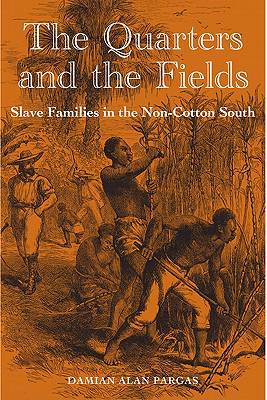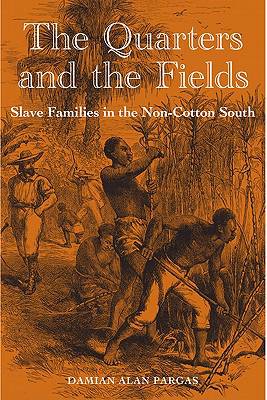
- Retrait gratuit dans votre magasin Club
- 7.000.000 titres dans notre catalogue
- Payer en toute sécurité
- Toujours un magasin près de chez vous
- Retrait gratuit dans votre magasin Club
- 7.000.0000 titres dans notre catalogue
- Payer en toute sécurité
- Toujours un magasin près de chez vous
42,95 €
+ 85 points
Description
"A fresh and inventive method of presenting some lesser-known aspects of slavery to both scholars and students."--Ronald Traylor, Southeastern Louisiana University
"Pargas redefines the meaning of 'slave agency' to examine the varying ability of enslaved workers to shape and protect their domestic arrangements."--Larry Hudson, University of Rochester The Quarters and the Fields offers a unique approach to the examination of slavery. Rather than focusing on slave work and family life on cotton plantations, Damian Pargas compares the practice of slavery among the other major agricultural cultures in the nineteenth-century South: tobacco, mixed grain, rice, and sugar cane. He reveals how the demands of different types of masters and crops influenced work patterns and habits, which in turn shaped slaves' family life.By presenting a broader view of the complex forces that shaped enslaved people's family lives, not only from outside but also from within, this book takes an inclusive approach to the slave agency debate. A comparative study that examines the importance of time and place for slave families, The Quarters and the Fields provides a means for understanding them as they truly were: dynamic social units that were formed and existed under different circumstances across time and space. Damian Alan Pargas is assistant professor of history and American studies at Utrecht University in the Netherlands. A volume in the series New Perspectives on the History of the South, edited by John David SmithSpécifications
Parties prenantes
- Auteur(s) :
- Editeur:
Contenu
- Nombre de pages :
- 274
- Langue:
- Anglais
- Collection :
Caractéristiques
- EAN:
- 9780813038049
- Date de parution :
- 10-10-11
- Format:
- Livre broché
- Format numérique:
- Trade paperback (VS)
- Dimensions :
- 156 mm x 234 mm
- Poids :
- 385 g

Les avis
Nous publions uniquement les avis qui respectent les conditions requises. Consultez nos conditions pour les avis.






